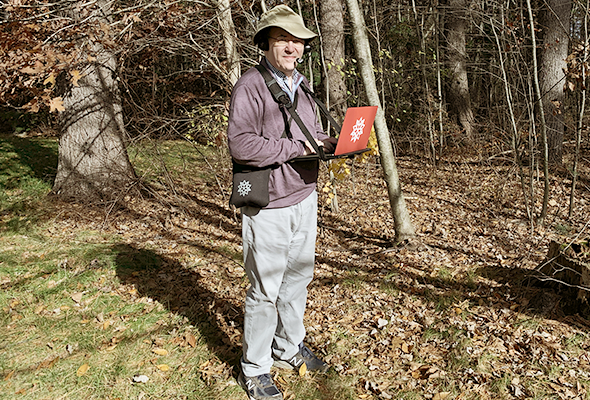Originally published at: https://tidbits.com/2020/01/22/guy-kawasakis-new-remarkable-people-podcast/
This podcast is related to the world of Apple only through the Mac cred of its host, Guy Kawasaki, but his lineup of guests makes it well worth checking out.
Cool show; I hadn’t heard of it. Guy is providing transcripts, which gives much more flexibility to read/listen/skip particular episodes. It’s a more civilized way to interact with podcasts. With the new tools to provide a rough cut of transcripts automatically, I fondly hope that more publishers will provide podcast transcriptions.
I immediately noticed Guy’s interview with Stephen Wolfram. It is the longest episode of the podcast so far. That interview covers many details of the relationship between Stephen and Steve Jobs:
- Steve Jobs suggested the name “Mathematica” to Stephen Wolfram for his computational engine.
- Mathematica was bundled with the NeXT, and CERN bought a bunch of them to get “free” copies for their scientists. Tim Berners-Lee used one of those NeXT machines as his original development platform for the World Wide Web.
- Wolfram Alpha is the computational engine answering a variety of queries for Siri and other search engines.
Any interview with Stephen will miss many details. Mathematica is an expensive package, but Wolfram has provided a free version of Mathematica for the Raspberry Pi since 2013. A version for the Pi 4 was released last summer. A Pi 4 with 4GB of main memory is a substantial computational resource. Anyone with children or relatives in high school would give them a gift to show them this resource. Students can study/master a great variety of subjects, including mathematics, physics, and biology (particularly anatomy).
There’s also a Wolfram Player for many platforms including an app for iOS. The player provides a way to compute/interact with Computational Data Format files that have been authored in the Mathematica app (including the free RPi version). This provides a great way to provide computational visualizations for live lectures or distributed presentations. Wolfram had hoped that their CDF would find the ubiquity that PDF files have made for Adobe in printing, but that dream has yet to be realized.
About a year ago, Stephen Wolfram made a detailed posting on his home setup. Wolfram Research’s headquarters is in Champaign, IL, but Stephen runs the country from his home in Concord, MA. He spends many hours a day on remote-video services. He does some really geeky things, including walking in the forest while writing/editing on his laptop computer. Stephen notes:
And I seem to have enough peripheral vision—or perhaps I’ve just been walking in “simple enough” environments—that I haven’t tripped even when I’m not consciously paying attention. No doubt it helps that I haven’t mostly been walking in public places, so there aren’t other people around.
Stephen is the geekiest Apple user I know. Wolfram used to have a close relationship with Apple, but they appear more distant since the death of Steve Jobs. I’m clearly a huge fan of both; I think the DIY community can find many great computational/visualization resources for their projects in Wolfram’s software.
